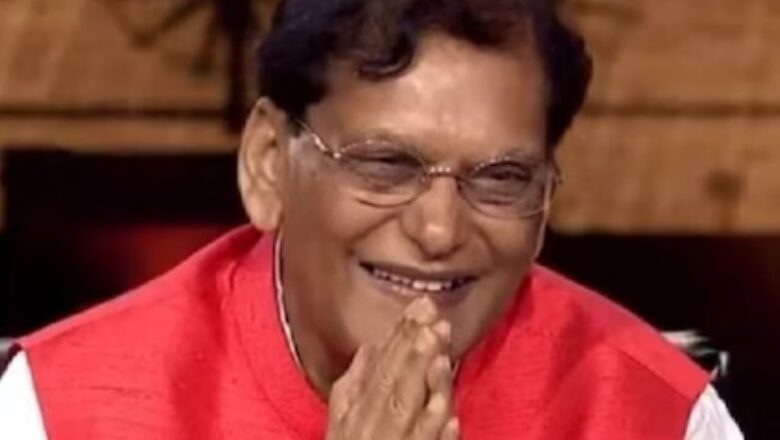
views
The founder of Sulabh International and acclaimed social reformer, Dr Bindeshwar Pathak, breathed his last on 15 August 2023 at the age of 80. His unwavering commitment for the world’s largest democracy shall inspire the generations to work for humanity. He was a social revolutionary who single-handedly made the strides to end the ill practice of manual scavenging, further expanding the movement to cleanliness, sanitation and effective water management through Sulabh toilets across the country.
A free thinker and with a deep sense of commitment for development, he made the world his home — and in reciprocation, the world was with him throughout his remarkable journey for emancipation of marginalised sections. The New York Times, in a piece in 1980, hailed Dr Pathak’s mission and described him as an “articulate advocate of the role of voluntary organisations in development. The major reason for success has been Pathak’s sociological and psychological genius – he knows how to translate ideas into action and get people to act”. The Washington Post in 1985 defined Pathak’s mission as “formidable”. In the 1960s, when he entered the fray as a young idealist in Patna, he wouldn’t have even a vague idea of creating history one day.
Destined to be proven a major transformational decision, the Gandhi Centenary Committee in Patna sent a young volunteer (Bindeshwar Pathak) to work amidst the Dalit community in Bettiah. Pathak braved humiliation and ridicule from members of the Brahmin caste he was born into to spend three months in a village studying the socio-economic conditions of the scavenger community. While he was aware about the realities of caste atrocities with his roots in north Bihar, this was a moment to revolt through his firm resolve and peaceful action.
In those days, open defecation was a highly prevalent practice with paucity of resources to afford the septic tanks and proper sewerage channels. It would be hard to imagine today that only a few decades back, the public toilets were nearly non-existent.
With little or no efforts to end the wrong practice of manual scavenging, a task that was carried out by the Dalit community, it was difficult to see a ray of hope for an egalitarian society in independent India that was otherwise supposed to ensure equal rights to all its citizens under the progressive constitutional framework. As a young activist with a strong urge to reform some of the odd social norms, Pathak had taken a resolve to replace the bucket latrines with the Sulabh toilets that don’t use sewers or expensive treatment plants. The Sulabh toilets heralded transformational changes in no time as the new experiment made it possible to use a fifth of the water used in conventional toilets, allowing easy switching between pits to enable composting and suitably equipped to local conditions.
Before the bright ideas and unswerving action combined and finally transpired in a much-needed social revolution, a promising young activist Pathak was deeply inspired with the humanitarian values and ideals. Highly inspired by the founding fathers of modern India, especially Mahatma Gandhi and Dr Bhimrao Ambedkar, he decided to devote his life to the social uplift of downtrodden classes.
Trained in sociology at the prestigious Patna University, it took almost five years for him to finally convince the Bihar government officials of the value and importance of Sulabh toilets. In 1973, the Arrah municipality gave Pathak a measly sum Rs 500 to construct two toilets in the compound of its office. It took off from there and the rest is a history of Sulabh’s phenomenal success.
Words travelled fast. In 1974, the Bihar government issued a circular to all local bodies to experiment with Sulabh’s technology and method to convert bucket toilets into two-pit pour-flush toilets. While the Municipal Corporations gave land and financed the construction of the toilets, they did not agree to pay for their maintenance. Compelled to make his humane venture survive and grow, Pathak took a risk by asking the users to pay a token amount for using Sulabh’s public facilities. He succeeded, unlike the British colonial state that too made an attempt for paid public toilets.
Initially in Bihar and later across the country, people saw the merit of the clean, odourless and environment-friendly Sulabh toilets and their trust helped the Sulabh toilet and sanitation movement to survive and thrive. With a resounding impact and success, by 1980, over 25,000 people were using Sulabh public facilities in Bihar’s capital alone. Sooner than later, Sulabh became the implementing agency for building and maintaining toilet blocks in educational institutions — and this way, it made a seminal contribution because the absence of latrines in schools was believed to force a large number of girl students to drop out. Finally, the Sulabh movement has helped significantly the larger sanitation ecosystem in the government and private sectors besides ushering in the sustainable model of urban planning and designs.
It would be worthwhile to note that Sulabh has converted dry latrines into two-pit pour flush latrines in more than 1,700 towns and built over 1.5 million toilets. Dr Pathak has achieved well-deserved acclaim nationally and internationally, including the Padma Bhushan, Ramon Magsaysay Award and the Stockholm Water Prize. In recognition of its exemplary contribution for making behavioural changes for sustainable water and sanitation practices, Dr Pathak was awarded the Gandhi Peace Prize in 2016. His mission was, under the banner of Sulabh, the key enabler of the government’s flagship programme Swachh Bharat Abhiyan.
As a fellow Bihari but with an urge to create a positive difference in the lives beyond borders, I had the chance to work closely with him in recent years. Dr Pathak was keen to take the sanitation movement to India’s neighbourhood, especially in Nepal, where we were close to institutionalising an implementation framework, starting with pilot projects in the border towns near Bihar: Janakpur, Birgunj and Biratnagar. Just a few months back, he was in Nepal and his visit was expected to add another dimension to the unique and reliable bilateral cooperation between India and Nepal. Hailing from north India, his emphatic commitment to reshape Nepal’s readiness for sanitation and water uses was quite natural. While he is not around, hopefully, his vision and Sulabh’s success stories will help in putting forward a positive sanitation movement for Nepal.
Dr Pathak’s sudden demise was more than shocking for his fellow country people and admirers across the world. The true tribute to ever affectionate, kind and large-hearted Dr Pathak would be to make the world cleaner, greener, more livable and equitable. The movement this human rights champion started with Sulabh should be taken forward for ensuring the greater common good.
The author is a policy professional and writer with a special focus on South Asia. Views expressed in the above piece are personal and solely that of the author. They do not necessarily reflect News18’s views.




















Comments
0 comment